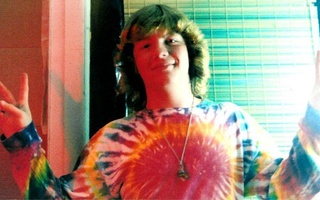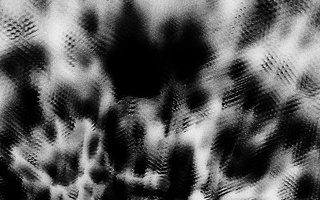Sitting in Winthrop dining hall with a few classmates in the fall of 1959, Allan Y. Cohen ’61 pondered what courses to take the next semester. Conversation gradually shifted to a supposedly easy course on motivation.
Someone asked who the professor of the course was.
“I am,” emerged a voice from the end of the table, Cohen remembered. To his surprise, seated a few chairs away was Richard Alpert, now known as Ram Dass, who was the instructor of the course on motivation and an associate professor studying personality and social psychology. Despite this unusual first encounter, Cohen enrolled in Dass’ course, a decision that led to a friendship with the professor.
Dass and his research partner Timothy F. Leary—who would later be described by President Richard M. Nixon as “the most dangerous man in America”—would take Cohen on a trip he would never forget.
By administering hallucinogenic drugs such as LSD and psilocybin to Cohen and Harvard students in the Harvard Psilocybin Project, Dass and Leary generated discord among faculty and students and propelled Harvard to the center of national media attention when details of the ongoing project were exposed in the spring of 1962.
‘GRANDIOSE IDEAS’
While psilocybin, LSD, and other hallucinogenic drugs are illegal today, these substances were legally available in the summer of 1960, when Leary first tried psilocybin during a fateful trip to Mexico with his family. Psilocybin, a naturally-occurring substance found in more than 200 species of mushrooms, transforms an individual’s mental state, triggering reactions that range from euphoria to paranoia. Right away, the young Harvard lecturer was impressed with the potential psychological and scientific implications of the drug.
“He was completely blown away,” said Don Lattin, author of a 2010 book which traces the progression and impact of Leary and Dass’ experimentation. “He came back to Harvard with this idea that psychedelic drugs could provide insights into mental illness.”
His interest was not unusual. According to Lattin, LSD and other hallucinogenic drugs began attracting academic attention in the 1950s, when scientists started to research the potential applications of the drugs in psychotherapy and treatment of mental disorders. But public consumption of the drugs remained low into the early 1960s.
“Most people had never heard of LSD [and other drugs],” Lattin said. “Marijuana was considered a much more dangerous, illegal drug.”
Intrigued by the power of these mind-altering substances, Leary joined forces with Dass and other Harvard researchers to investigate the effects of psilocybin.
“[Leary] had kind of grandiose ideas,” said Professor Herbert C. Kelman, who taught with Leary and Dass in the Department of Social Relations, Harvard’s former multidisciplinary blend of psychology, anthropology, and sociology. “He was an odd character to begin with.”
Cohen, who eventually entered Harvard’s clinical psychology graduate program in 1961, said that he knew both men “very well” and described the researchers as “extremely enthusiastic” about their scientific endeavors.
“[Dass was] a smart, young, quantitative psychologist,” Cohen said, adding that Dass served as his functioning academic adviser for the remainder of his undergraduate career.
With support from Harvard’s Center for Research in Personality, the Harvard Psilocybin Project began in 1960 and entailed a range of studies, including investigations into the ability of the drug to stimulate religious states in seminary school students and to alter the criminal behavior of prisoners.
Read more in News
Elizabeth HoltzmanRecommended Articles
-
Laxwomen Blow By B.C., 8-4After playing three key games in the last week, the Harvard women's lacrosse team--ranked second behind Penn State in the
-
Truman Visit Meets DelayTentative plans for ex-President Harry S. Truman to visit the University in the near future have fallen through, it was
-
... When old is said in one and maker mates with madeIN 1960 RICHARD ALPERT was the son of the president of the New Haven Railroad. He was an ambitious Jewish
-
 Harvard, LSD, and the 1960s
Harvard, LSD, and the 1960s -
Quartet of Athletes Commits To HarvardSt. John's Prep has become a recruiting hotbed for Harvard lately.
-
 In Early 1960's, Experiments With Hallucinogenics Caused Major Uproar, Minor Shake-up
In Early 1960's, Experiments With Hallucinogenics Caused Major Uproar, Minor Shake-up














